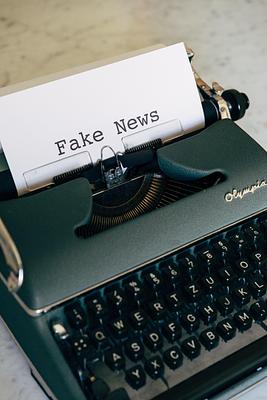Looking for all Articles by Dr Sara Thomas?
Top tips for spotting reliable news
Dr Sara Thomas, Wikimedia expert, shares tips for spotting reliable news

As part of the October 2021 Scottish Friendly Children's Book Tour with Nick Sheridan, all about news, media and how to spot the truth amongst the lies online, we asked Wikimedia expert Sara Thomas to give us her top tips.
Information literacy
Although we have access to a huge amount of information online, not all of it can be trusted. Sometimes, information online has been put there to deliberately mislead people. Learning about what information you can trust is called information literacy.
Wikipedia is the world's biggest encyclopedia, and it's available in over 300 languages. Anyone can edit Wikipedia, but one thing that a lot of people don't know is that it has rules about the kind of thing that you can write. This is because the people who write Wikipedia articles want it to be as trustworthy as possible. These rules are also useful for helping us to spot bad quality information that we might find elsewhere, on or off the internet.
Wikipedia is a lot more reliable than it was when it first started, but in case there are things on it that aren't right, or have gone out of date, we tell readers that they should read carefully, and check the sources where possible. Here are some things that we've learned from writing Wikipedia articles that can help you spot reliable news stories.
Trustworthy sources
If you're reading a news story on the internet, where has it been published? For example, in general, broadsheet newspapers tend to be more reliable than tabloid newspapers. If you've not heard of the website, or the newspaper, try searching for it on Wikipedia – where you'll probably be able to find out if it's reliable or not.
Has the story cited its sources? Does the author tell you where they got their information? If the author can't back up what they're saying with good sources, you might want to think twice about trusting what they have to say.
Writing with a neutral point of view
You can tell a lot about a news story from the kind of language it uses. Is the author exaggerating, or making wild claims that they can't back up? Are they sticking to telling you the facts? If they are exaggerating, why might that be?
Verifiability
On Wikipedia, sources have to be verifiable, which means that someone else must be able to go and check that the source says what you've said it does. If a story is vague about their sources, then no one else can go and check that – so you might not be able to trust it. For example, it would be very easy for someone to say that they'd overheard someone talking in the street – nobody can check that. (One exception to this is where people who talk to reputable journalists might have to stay anonymous, for their own safety. Reliable newspapers and websites will check these kinds of things very carefully before publishing a story.)
Conflict of interest
On Wikipedia, you shouldn't write about your friends, family, or place of work. That's because you're more likely to be biased when you write about those things – it's much harder to write with a neutral point of view. You might leave things out, or place too much emphasis on something else. Can you trust the person who's written the piece to be writing in an unbiased way?
The Scottish Friendly Children's Book Tour ran for over 25 years, ending in March 2025. To find out abour future school events, see our Schools events and opportunities webpage.